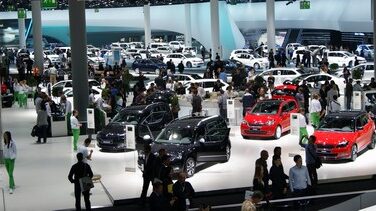It’s a slightly scary thought but my first visit to the Frankfurt motor show was some 30 years ago in the mid-1980s and I have been to each show for the last 20 years.
It’s stating the obvious to say that a lot has changed, but this year’s show marked a significant shift which had very little to do with the cars on show.
The continuing debate over self-driving cars is hotting up and while the Germany car industry is spending 40 per cent of its R&D budget on alternative powertrains including e-mobility and e-vehicles, the view is that the internal combustion engine will not be replaced; Daimler said that it thinks ICE will be our primary power source for at least another 20 if not 30 years.
But what really struck me was a subtle shift in the idea of car ownership, partly spurred by electric cars (worth noting that German manufacturers will have 16 EVs on sale by the end of this year).
Manufacturers are now talking seriously about car sharing rather than ownership as the way forward. BMW has a board member whose responsibilities include car sharing. Company CEOs are also talking much more openly about the need to better integrate private and public transport.
It’s not that young people are falling out of love with cars, said one executive, they just want to engage with them in a different way. The theory is that those in their 20s and 30s who like to share their experiences on social media don’t have any problems in the idea of sharing cars.
Those who live in the country might find this a difficult concept to grasp. But as Karl-Thomas Neumann, president of GM Europe below)put it at a pre-show conference, the industry has to work together find solutions to global megatrends.

One of those trends is the population explosion in cities as, globally, more and more leave rural areas to find work. And that’s something that few would have predicted 30 years ago.

